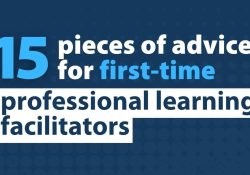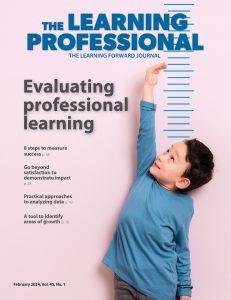[embedyt] https://www.youtube.com/watch?v=sqlgy9zAmjI[/embedyt]
We want to enthusiastically recognize those of you who have joined us in the field. Welcome! We have some amazing millennial teachers (born between 1980-2000) in our schools. Many of you are replacing our baby boomer teachers, who are quickly approaching retirement. As millennials, you have a valuable perspective to contribute to our schools. Having conversations with Generation X and baby boomer colleagues and administrators is key to our goals of student achievement and school improvement. So how might millennial teachers best communicate with veteran educators?
Here are two pieces of general advice for communicating with those in positions of leadership:
- While the web is “flat” and everyone can talk to everyone, acknowledge and respect that there is a hierarchy in school systems. If you want to talk to someone many levels “above” you in the hierarchy, begin by approaching your school’s administrator. If you choose not to follow the chain of command, someone from the district office will just bump you down to the leader closest to you in the organization. Communicating ‘past’ that person will not be appreciated.
- Millennials have shared with me that they want to prove their competence. While your eagerness to contribute is much appreciated, it is important to sometimes defer to your more experienced colleagues. Discerning when to add your voice and when to listen to someone with more experience at a school site can be invaluable to building an effective collaborative team.
When you are working with older educators in your school, you’ll also have to be aware of generational differences in communication styles and expectations. Beyond differences in rank and title, there are practical considerations you need to understand in order to be generationally savvy. Here are two reminders for working with Generation Xers and baby boomers:
- If the person is a baby boomer (born 1944-64), consider the generational values with which they grew up: collaboration, relationships, willingness to go the extra mile, and service-orientation. When talking to a baby boomer use “we” instead of “I.” For instance, “How might we go about changing this policy? What can we do differently? Might we work on this together after school? What if I put something together that we can talk about?” The group-taught millennial knows how to collaborate, and using genuine “we” statements during communications shows a team-player mentality.
- If the person is a Generation Xer (born 1965-81), consider his or her generational values of independence, efficiency, and informality. Make communications short and sweet, and try to stick to email as much as possible. If you ask for too much “we” and always need to communicate face-to-face, you may be seen as too needy. Don’t be afraid to take initiative when appropriate, and share your results. Gen Xers appreciate a life-work balance, so independence isn’t a bad thing.
Once you understand the basic generational considerations of communicating with a superior, you’ll be widely successful. This knowledge comes in especially handy when you need to approach difficult conversations with your administrator. For now, try these two strategies for presenting your message during a difficult moment so it is well received despite generational gaps:
- Keep it cognitive rather than emotional. Instead of describing someone as a “train wreck” or “a pain to work with,” focus on neutral words that are connected to standards, benchmarks, and job descriptions.
- If someone says, “What do you want me to do about it?” have an answer. Oftentimes we think the other person knows what we are thinking, but specific, actionable behaviors are often useful in moments of conflict. Staying visibly and audibly future-focused implies possibility and forward thinking, and often helps resolve issues, regardless of whom you are talking to.
Even though it is critical, communication between adults can be undervalued in schools. Being relationship savvy is the key to effective, respectful communication between millennial and veteran educators and administrators.







